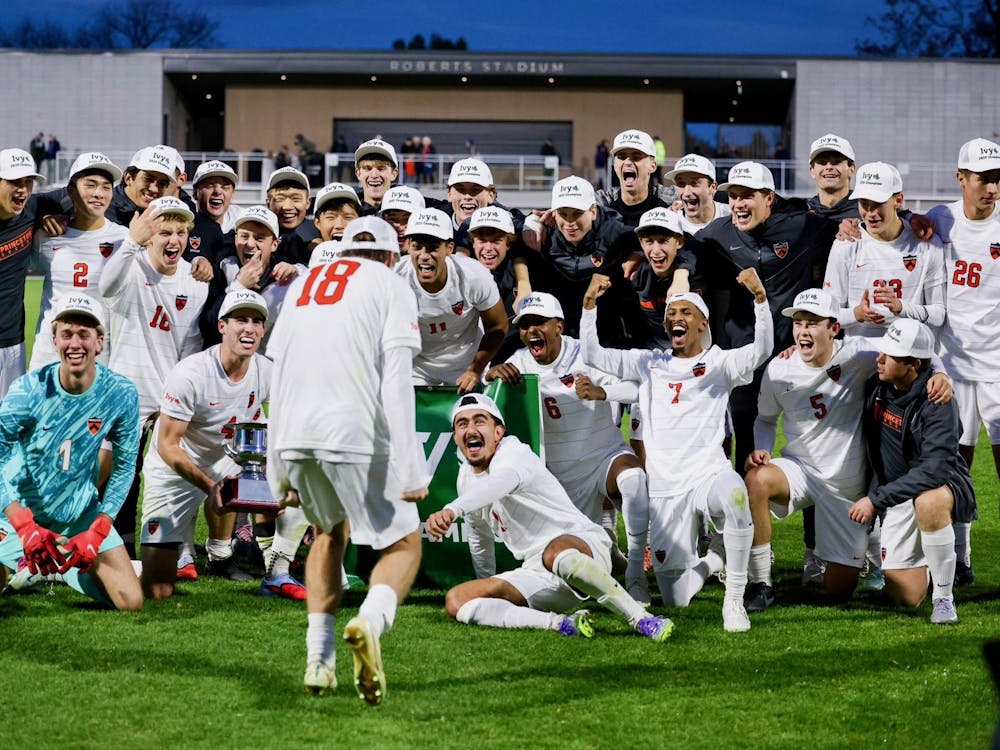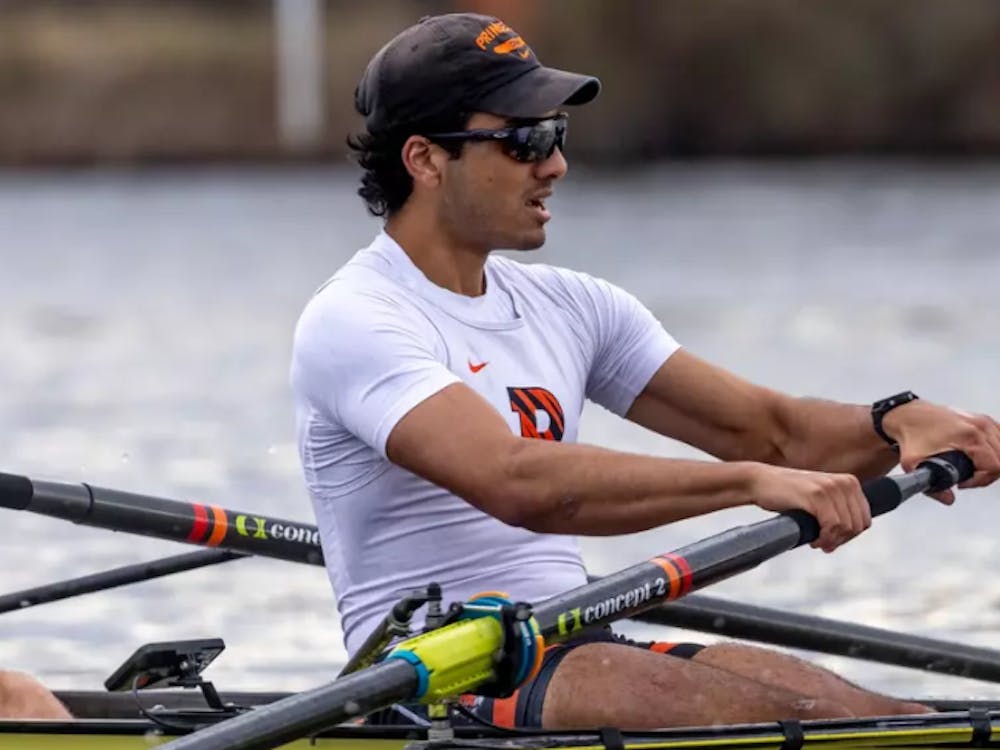Club hockey has been a great recreational opportunity for Princeton student-athletes for more than a decade. A founding member of the Mid-Atlantic Collegiate Hockey Association (MACHA), a Division II league of the American Collegiate Hockey Association (ACHA), Princeton club hockey competes against the varsity programs of other major universities without Division I teams.
Until two years ago, the Tigers were good, too. Since then, a full roster that once required tryouts at the beginning of the season has dwindled significantly, and the league-founding and playoff-contending Princeton has fallen to the status of associate member, not eligible for the playoffs and only playing half of the conference games it was once entitled to play. The team, however, continues to be an integral part of the Princeton experience, even for the senior members who saw the program through better days.
In Chow’s freshman year, the Tigers finished second in the MACHA, qualified for the regional tournament and even maintained a national ranking. Chow attributed the downfall not to a loss of interest in club hockey, just an absence of new players to fill the gaps of graduating players.
“We are a club team, so our number-one goal is to have fun, but it has been tough just to stay in the league,” Chow said. “We have talked to admissions, [club hockey] alumni are sending letters, we are just trying to build numbers. We are hoping to turn it around.”
When the team required tryouts, the roster was filled with former high school varsity players and even a few select players. Chow attempted to walk on to Princeton’s varsity team his freshman and sophomore years, and senior goalie Will Harvey is a former varsity player. Since Princeton has not had a junior varsity team since the early ’90s, the club team has provided an outlet for non-varsity players who still wanted to compete.
The team is coached by Steve Macy, a volunteer coach from Philadelphia who drives up to Baker Rink for practices. He has been with the program from the start. For senior defender Mariesa Mason, one of the three women on the team, he is part of what makes club hockey rewarding.
“Steve Macy has been an excellent coach, and playing for him has been a lot of fun no matter what the score,” Mason said.
Mason was a former women’s varsity player but switched to club because she “just needed a little break from hockey,” she said.
Though the team has a smaller core of talent than in its earlier days, it has also taken on a new direction in the search for bodies to put on the ice. Last year, players even taught people how to skate.
“Right now we want to get out there and enjoy the game and have fun on and off the ice,” Chow said. “It’s just the camaraderie of being on a team and playing the game we love. When I was a freshman, it was all business. We had a swagger about us. Now we do not even have playoff goals.”
Competing at the club level can offer a challenge to all levels of hockey players, including those recruited for the varsity team who later switched to club. Harvey was a forward until he stepped in on the club team at goalie, a position with which he was unfamiliar.
“At first, when I was terrible, I just said, ‘Whatever, I’m not a real goalie,’ ” Harvey said. “Then I got tired of being horrible and really pushed myself to improve. The varsity goalie, [junior] Zane Kalemba, was a big help in passing on his wisdom and giving me a few pointers. I’m a little scared of where I’m at now — I don’t know if I can use the ‘not a real goalie’ excuse anymore — but I’m still a forward deep down.”

The team’s decline worries many members, especially the older players who have weathered the entire storm. Some like Chow viewed the club team as a factor in choosing where to attend college.
“[Club hockey] was my social community and athletic outlet at Princeton,” Chow said. “I feel terrible that it is not in our control. A lot of the people that are here now may not be able to have the experiences I had as a freshman and sophomore here.”
Though the abrupt fall from the glory days of three years ago has currently put Princeton out of Division II contention, the club hockey team’s fun-on-and-off-the-ice attitude continues to offer a release for those involved.







